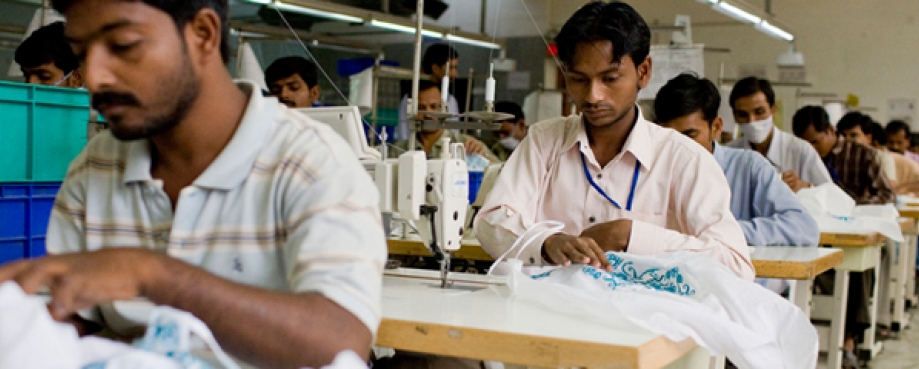
I could not have arrived in India at a better time - as an Indian news junkie, I have been feasting on newspaper and magazine coverage of the election results announced the day before I landed.
The Bharatiya Janata Party (BJP) scored a sweeping victory - although it only got 31% of the votes, India’s first past the post system handed them a majority of seats. The stock market has reached new heights and the rupee has become stronger. The new Prime Minister, Mr Modi has promised to spread his model of business friendly development - which creates jobs, it is claimed - across the country. India needs one million new jobs every month, just to keep up with new entrants to the labour market.
As Chief Minister of Gujarat for more than a decade, Mr Modi has had ample time to experiment with the policies that we can expect will now roll out across India. Corporate India backed Mr Modi in a way it never supported any political party before.
Will all this have any impact on the rights and lives of workers who figure in ETI member’s supply chains? The BJP has promised a review of outdated laws, and business is hoping that certain labour laws will be scrapped or modified. Their wish list is well known - and supported by the Economist and Financial Times. The two bete noirs of business are the Industrial Disputes Act and the Contract Labour Act.
The Industrial Disputes Act contains a clause that requires a company wishing to make more than 100 workers redundant to get government approval. So this discourages companies from hiring workers.
Mr Modi’s business friendly government in Gujarat amended the Industrial Disputes Act in 2004 to allow companies in Special Economic Zones (SEZ) in the state to lay off workers, without seeking the permission of the government, by simply giving a 1-month notice to the worker. We can expect this to happen at national level.
The other law in the firing line is the Contract Labour (Abolition and Regulation) Act. Competent ethical audits that check against the “Regular Employment” clause in the ETI Base Code will throw up the widespread use of contract labour - workers hired through an agency. The law says that such workers should only be used in genuine cases of short term needs, and it provides various safeguards to the contract workers.
Both of these laws are “more honoured in the breach than in the observance”. Thirty years ago, when I commuted into work in Bombay, hanging on to the outside of the train, there were still dozens of textile mills dating back a century sitting on prime development land. The vast majority have been closed, the workers made redundant with fancy malls and flats built on the mill land and the workers’ slum housing. The Industrial Disputes Act did not stop that. And contract labour is widespread, with workers subject to considerable abuse - like contractors paying below the minimum wage and forced overtime.
This is normal. Take the Factories Act, which covers safety and health, hours and holidays and other issues of interest to ETI members. Any factory employing more than ten workers should register under the Act. According to World Bank research, two thirds of factories that should register, don’t.
Think about that. Leave aside whether factories actually comply with the Factories Act - two thirds don’t even bother to register.
The World Bank wizards have analysed the data by state and sector, and there are some wide variations. One of the worse states in the country for compliance is West Bengal, where the Communist Party of India (Marxist) was in power for three decades.
And the sectors where compliance is worse? Oh dear, its textiles, garments and furniture, just those sectors where most ETI members will be sourcing. Pharmaceuticals is best, if you want to know.
Really, it is up to companies in India to decide which labour laws they follow. What about government inspectors, you ask. They have no budget for travel, so can only visit workplaces when invited, and when the company provides them with a vehicle. A labour case can easily take ten years in the courts before a judgement.
So why the fuss? If these laws are toothless and nobody bothers, why repeal or amend them?
The answer is chilling. If even these laws are swept away, it is a very clear signal to workers: don’t resist; don’t form trade unions; the courts will never rule in your favour. You will be crushed.
Mr Modi and his party deserve their chance - that’s democracy. But workers need to share in the prosperity he has promised.
